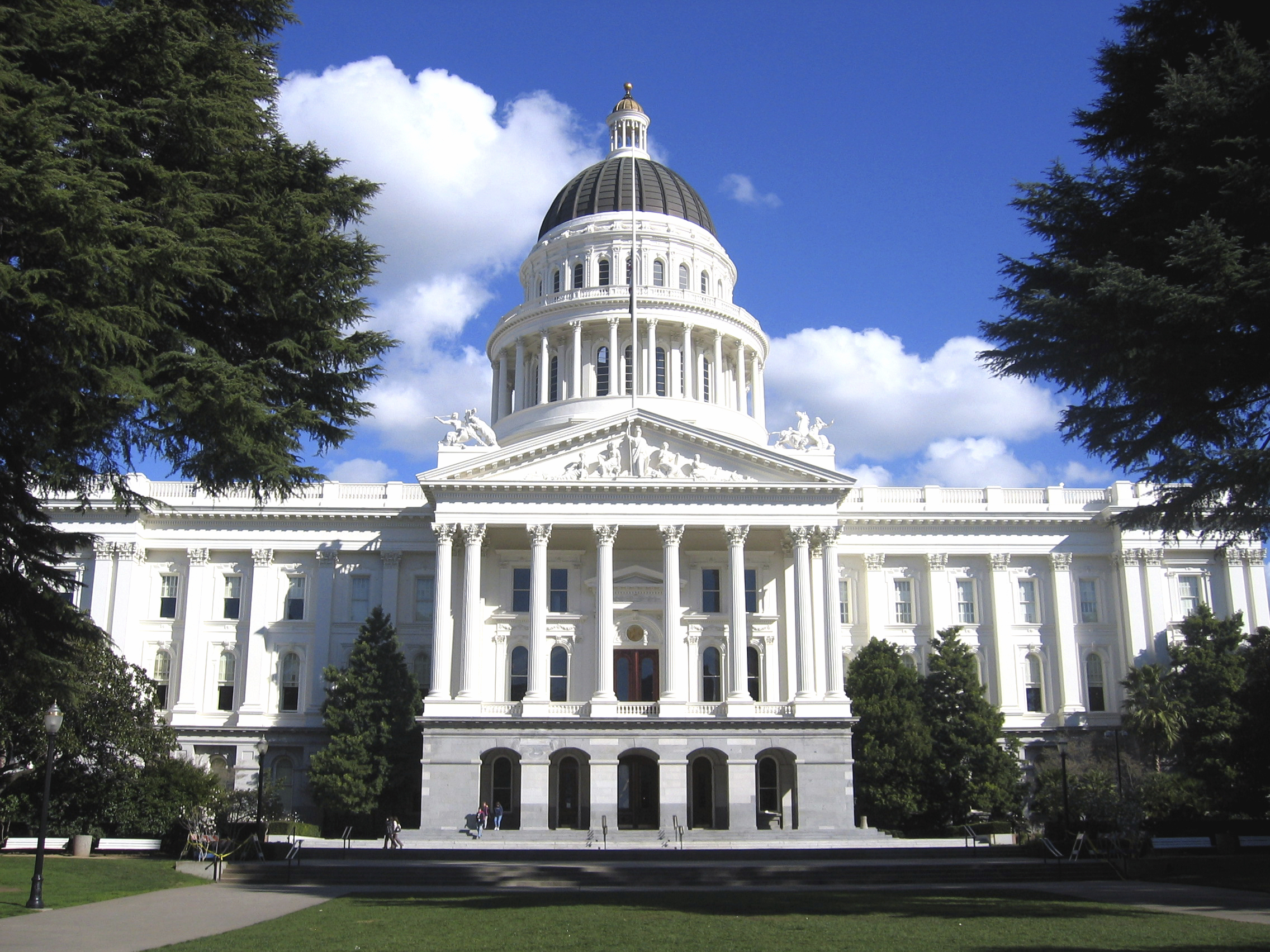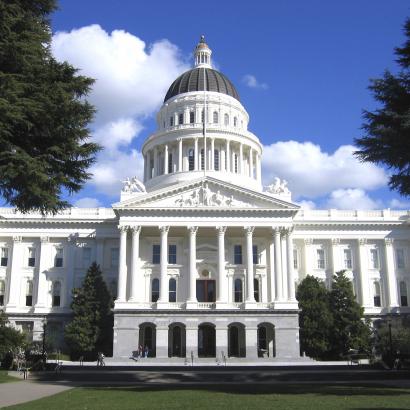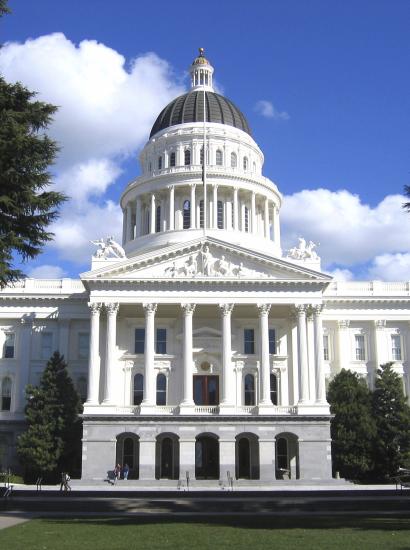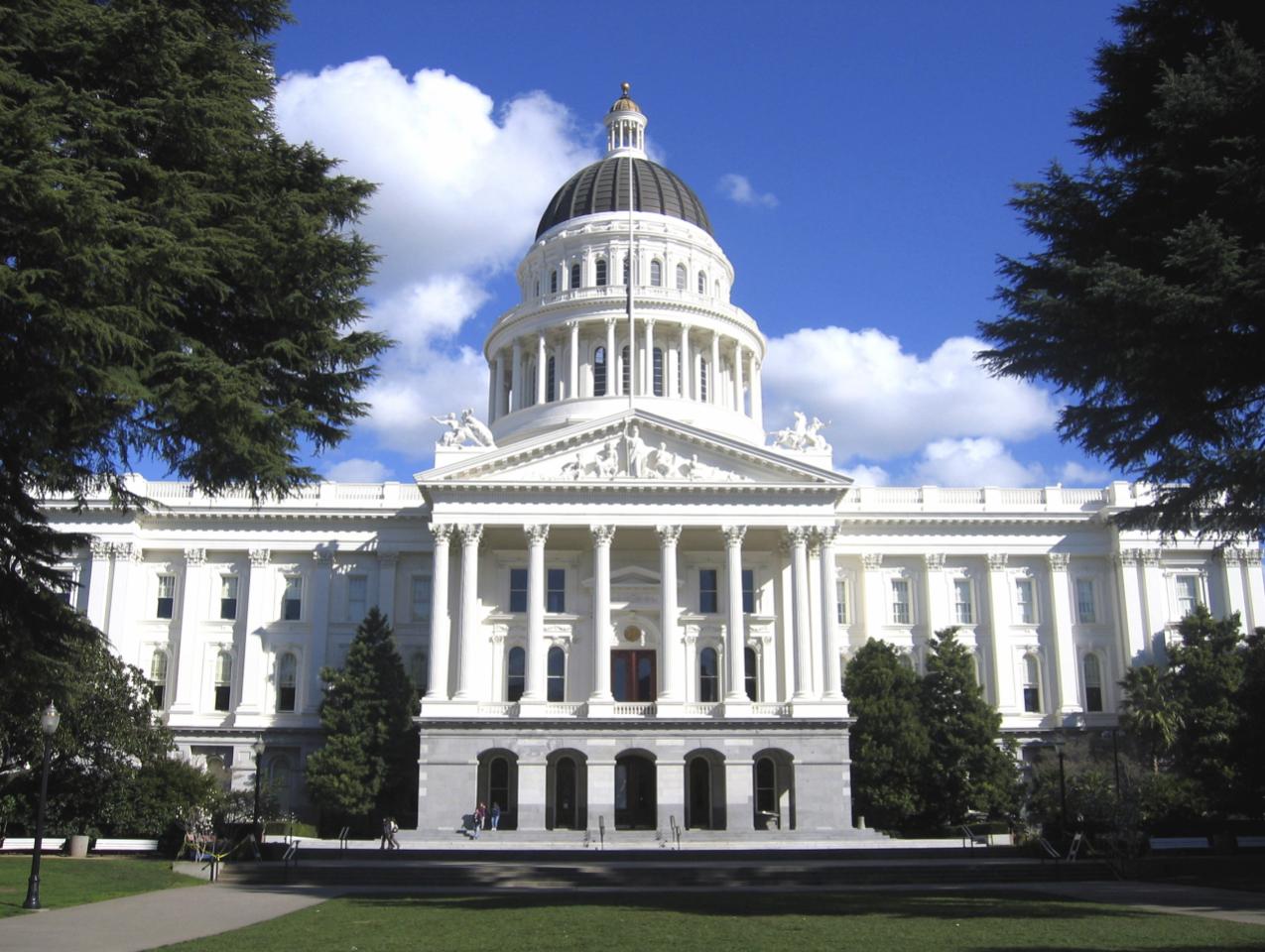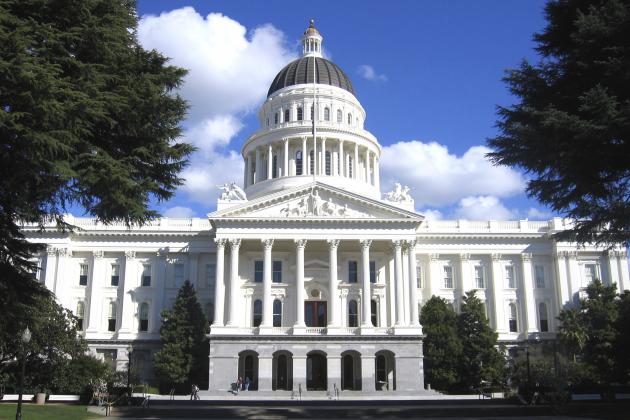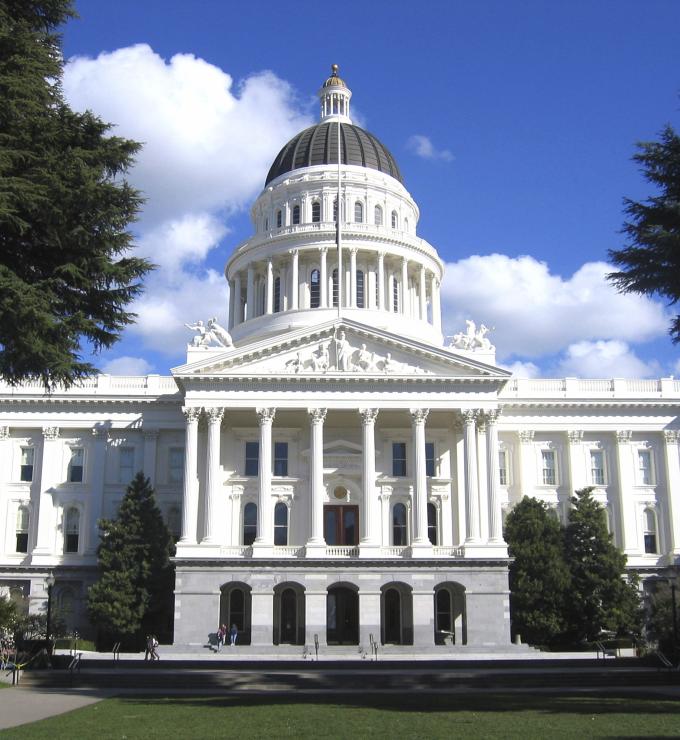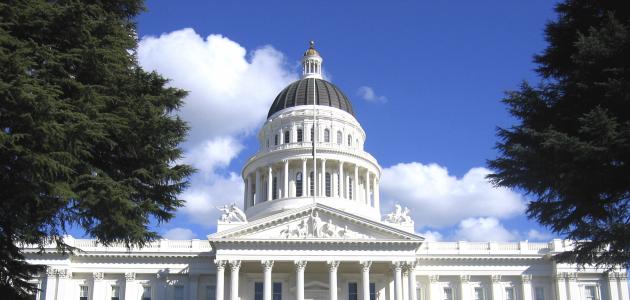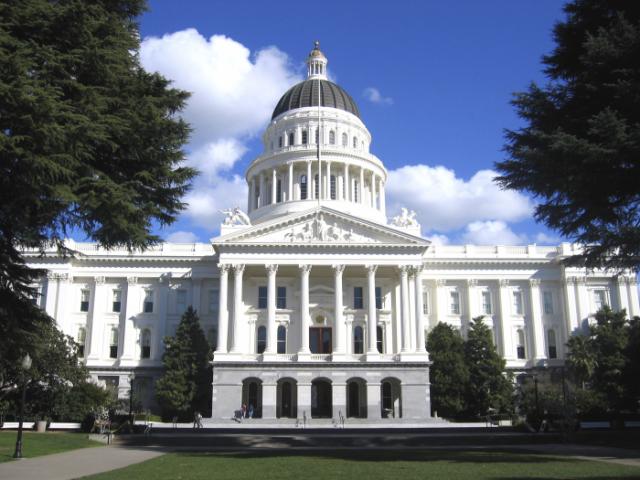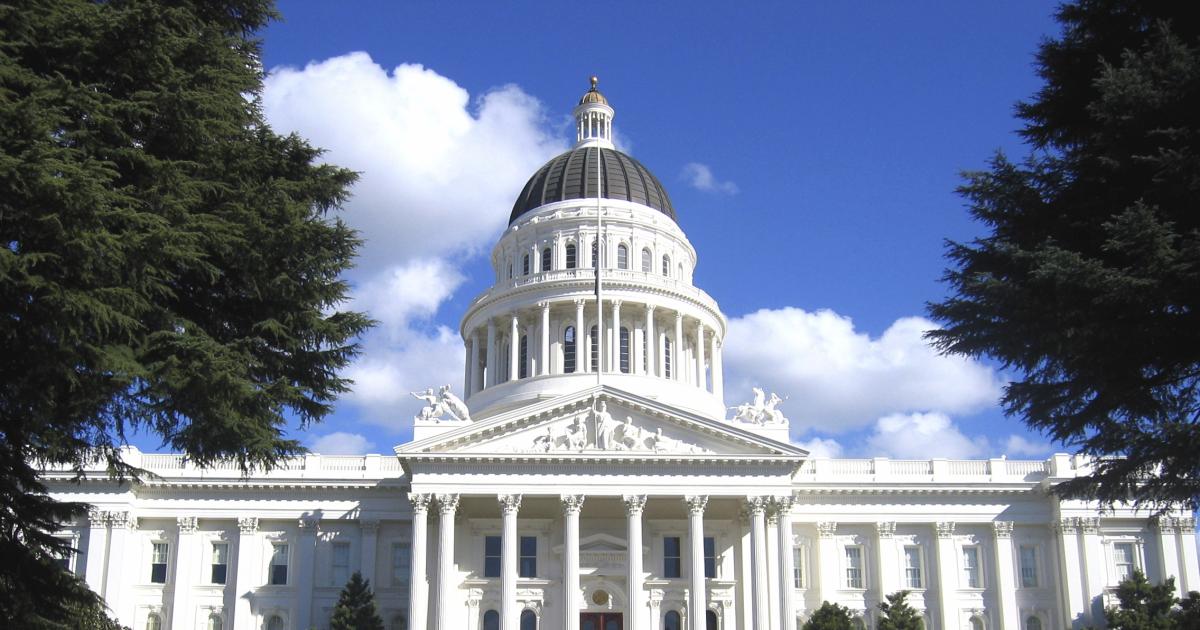- California
- Politics, Institutions, and Public Opinion
- Law & Policy
- Empowering State and Local Governance
To the adage that opinion surveys are snapshots in time, consider what the last month of bill-signing in Sacramento—California Gov. Gavin Newsom deciding the fate of hundreds of pieces of legislation forwarded to his office—says about the curious world of Golden State politics and policy choices.
With that in mind, let’s assort some of these pending laws (bills signed by Newsom this past month don’t go into action officially until 2026) and the governor’s reasons for doing so into four categories.
Too Much Time on Their Hands. If you watched the television series Yellowstone, you might recall the theme of multigenerational Montanans bitterly resenting moneyed Californians gentrifying what was open, unspoiled land.
Imagine how those locals would feel if they compared the two states’ respective legislatures.
Whereas Montana lawmakers meet in regular session for up to 90 working days in every odd-numbered year, California is one of a select number with a full-time legislature (i.e., lawmakers meet each and every year, throughout the year).
The result of all that bonding in Sacramento: bills that suggest lawmakers maybe have too much time on their hands—or at least aren’t focused on core matters like peace, prosperity, and the human condition.
One such example: 2025’s “claw law” (formally, AB 867) that bans “any type of claw removal” on cats. Add to that three other bills signed by Newsom pertaining to all cats’ arch nemeses (“stopping the puppy mill pipeline”, the governor’s office boasted), and it gave the governor a chance to show he’s a friend of man and beast.
For the record, I’m not anti-feline. Rather, I’m a Californian who wants elected officials to pay more attention to the struggles of two-legged mammals in this paradise lost.
2027 (and 2028) Can’t Come Soon Enough. Time will tell if Gavin Newsom commits to 2028’s presidential sweepstakes. Still, it’s Newsom’s present White House ambitions that will impact California’s next governor, who will take office in January 2027.
One such example: Newsom affixing his signature to SB 518, which creates a new state agency to handle restitution for slave descendants—this, five years after Newson signed off on a task force to examine the feasibility of reparations (“Our past is one of slavery, racism, and injustice. Our systems were built to oppress people of color. It’s past time we acknowledge that,” Newsom opined five Septembers ago amidst a different political climate).
The 2028 angle: if Newsom wants to spend future summers as he did this one past when he visited South Carolina and wooed local black Democrats, his signing of SB 518 is a handy talking point—not to mention a way to buy peace with a California NACCP that demanded SB 518’s enactment (all mentioned in this space back in September).
The 2027 angle: now that the Bureau for Descendants of American Slavery has been created within California’s Department of Justice, what are the policy implications? (In case you’re asking why this isn’t a 2026 matter, the California Legislative Black Caucus describes the new bureau as “charged with, among other things, confirming descendancy, public education and outreach, and reparative program coordination”, which doesn’t speak to a speedy process.)
As for Newsom’s response should such reparations, in what might be a staggering dollar amount, reach his successor’s desk? Former vice president Kamala Harris may know the answer.
California Isn’t Irony Impaired. On the second day of October, the governor’s office issued a press release in praise of Newsom signing two measures (SB 42 and SB 398) “curbing billionaire influence” (in Newsomspeak, “focusing on keeping dirty money out of California’s democracy and no “sweepstakes” from billionaires seeking to buy elections”).
The irony: take a look at California’s upcoming special election, where the lead donor to Proposition 50 and Newsom’s attempt to replace California’s current congressional map with a more Democratic-friendly design is the family of billionaire financier George Soros (here’s a list of Prop 50’s leading donors, including a few special interests—teachers’ and nurses’ unions—who won’t let the governor forget their largesse).
Then again, one can argue that the California governor literally owes his job to billionaires.
Four years ago, and facing a recall election and the prospect of an early political retirement, Newsom didn’t object to Netflix billionaire Reed Hastings donating $3 million to beat back the challenge. Per Forbes, of the 28 billionaires who donated to the recall pro or con, 26 supported Newsom—in all, about $9.2 million sent the governor’s way versus only $250,000 from the two billionaires who wanted him gone.
Nor did Newsom, back when he was San Francisco’s mayor, object to Google billionaires lending a Boeing 757 to shuttle guests to his Montana wedding (“like flying in seven connected living rooms,” former San Francisco mayor Willie Brown marveled).
By the way, the number of California billionaires has grown on Newsom’s watch from 144 in 2018 to 199 in 2025 (which is double Texas’s number). Should the governor be bragging?
The More Things Change . . . the more they stay the same—or so it seems regarding two long-running California policy woes: homelessness and gasoline prices.
As for homelessness, at issue was AB 255 and the question of whether to free up more state money for so-called “sober” homeless housing. Long story short: the measure tweaked Newsom’s “housing first” strategy; a move that apparently offended the governor, as he decided to veto the bill approved by 118 of 120 voting legislators.
(The same dynamic repeated itself with Newsom’s veto of AB 1309, which would have raised state firefighters’ pay—the veto curious in that Newsom cited “significant cost pressures to the state” at a time when the 2025 special election, if it mirrors the 2021 special election, will cost the state at least $200 million in covering counties’ costs.)
As for gasoline, Newsom signed AB 30, which temporarily allows the sale of an additional blend of gasoline (it’s called E15) while the California Air Resources Board determines its eco-viability (one reason why California’s gasoline is absurdly expensive: the state mandates a special blend of fuel that burns cleaner but is more expensive to produce).
Meanwhile, the light at the end of the tunnel (easing pain at the pump) may be the proverbial oncoming train: in this case, California looking at the prospect of two oil refineries shutting down in the near future, which translates to the state losing one-fifth of its refineries. Which begs the question: are California lawmakers familiar with the concept of supply and demand?
It might also explain this bill-signing: Newsom OK’ing AB 268, which makes Diwali an official state holiday beginning in 2026.
About Diwali: AB 268 describes the celebration as “a festival of lights during which celebrants light small oil lamps, place them around the home, and pray for health, knowledge, and peace.”
Praying for knowledge? The line forms to the rear of California policymakers in need of such religion.







